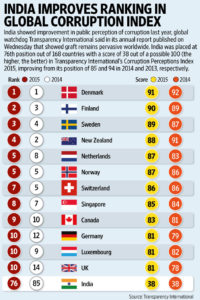 The Reserve Bank of India (RBI), in its sixth bi-monthly monetary policy statement, has proposed steps to improve ease of doing business for start-ups through easier access to foreign capital and by enabling smoother transfer of ownership. RBI Governor Raghuram Rajan said the central bank wants to simplify the process and will create an enabling framework for attracting foreign venture capital (VC).
The Reserve Bank of India (RBI), in its sixth bi-monthly monetary policy statement, has proposed steps to improve ease of doing business for start-ups through easier access to foreign capital and by enabling smoother transfer of ownership. RBI Governor Raghuram Rajan said the central bank wants to simplify the process and will create an enabling framework for attracting foreign venture capital (VC).
“We are supporting the start-up process by making it easier to raise (capital), often from abroad, but also simplify the compliance with regulations, including putting forms online,” Rajan said during the post-policy press conference on Tuesday.
For easing cross-border transactions, RBI has proposed (in consultation with the government of India) that in case of transfer of ownership of a start-up, permitting receipt of the consideration amount on a deferred basis could be done. It has also proposed to enable escrow arrangement or indemnity arrangement up to a period of 18 months.
In addition, RBI has also proposed (in consultation with the government) to permit start-ups access to rupee loans under the external commercial borrowings framework with relaxations of eligible lenders. It is also looking at issuing innovative foreign direct investment (FDI) instruments like convertible notes by start-ups. Further, RBI is looking into the proposal of issuing shares without cash payment through sweat equity or against any legitimate payment owed by the company, the remittance of which does not require any permission under the Foreign Exchange Management Act (Fema).
Harish H V, partner, Grant Thornton India LLP, said these measures are for helping start-ups in their operations and fundraising. “We look forward to further relaxations around convertible notes as promised. These steps, together with the start-up action plan and more initiatives expected from the ministry of corporate affairs and the Budget, should help the cause of the Stay In India and creating value in India… Every step counts,” he said.
RBI said the aim was to enable start-ups, irrespective of the sector, to receive foreign VC investment and also enable transfer of shares from foreign VC investors to other residents or non-residents.
The central bank has also proposed simplifying the process for dealing with delayed reporting of FDI-related transactions by building a penalty structure into the regulations. The notifications/circulars under Fema, wherever necessary, will be issued shortly.
The regulator said electronic reporting of investment and subsequent transactions will be made on the e-Biz platform only. Here, submission of physical forms will be discontinued with effect from February 8.







